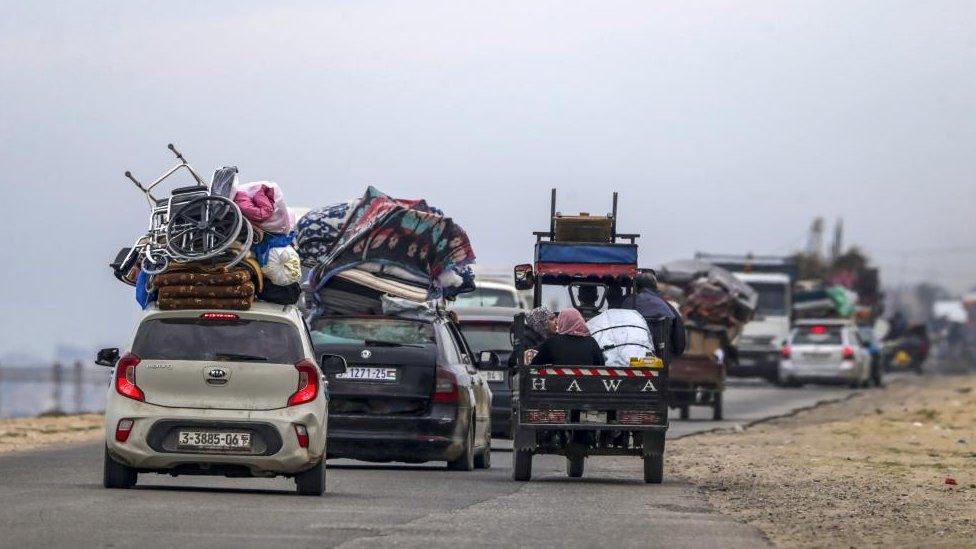Israel orders evacuation of largest hospital in southern Gaza
- Published
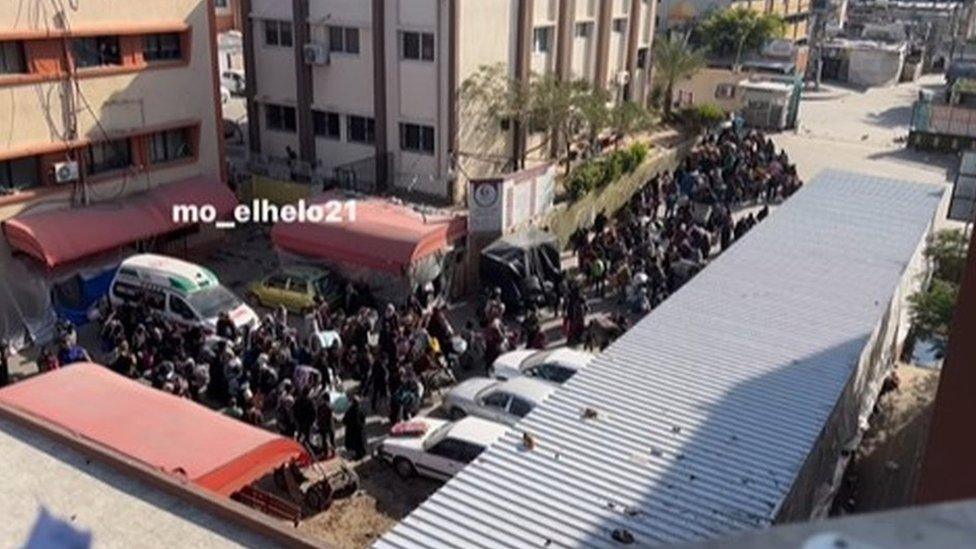
Palestinian journalist Mohammed al-Helo posted a video showing civilians leaving Nasser hospital
Palestinians say Israeli forces have ordered thousands of displaced people to evacuate the largest hospital in the south of the Gaza Strip.
Videos showed an announcement via loudspeaker and a crowd leaving the Nasser Medical Complex in Khan Younis.
Israel's military said it had opened a secure route for civilians, but did not intend to evacuate patients and medics.
Doctors and health officials say a number of people there have been killed by Israeli sniper fire in recent days.
The reported deaths came as battles between Israeli troops and Hamas fighters raged in the vicinity of the hospital, which the UN says has been under siege for around a week and is only minimally functional.
Intense hostilities have also been reported around the nearby Al-Amal hospital, which the Palestinian Red Crescent said was raided last week after some 8,000 displaced people and patients complied with an order to evacuate.
The Israeli military has previously accused Hamas fighters of operating from inside and around the two hospitals - a claim that the armed group and medical officials have denied.
Khan Younis has been the focus of Israel's invasion of the south of Gaza, which began in early December after troops largely took control of Hamas strongholds in the north.
The Israeli military launched a large-scale air and ground campaign after Hamas gunmen killed about 1,200 people in southern Israel on 7 October and took 253 other people hostage.
Gaza's Hamas-run health ministry says more than 28,500 people have been killed in the territory since then, including at least 103 in the past 24 hours.
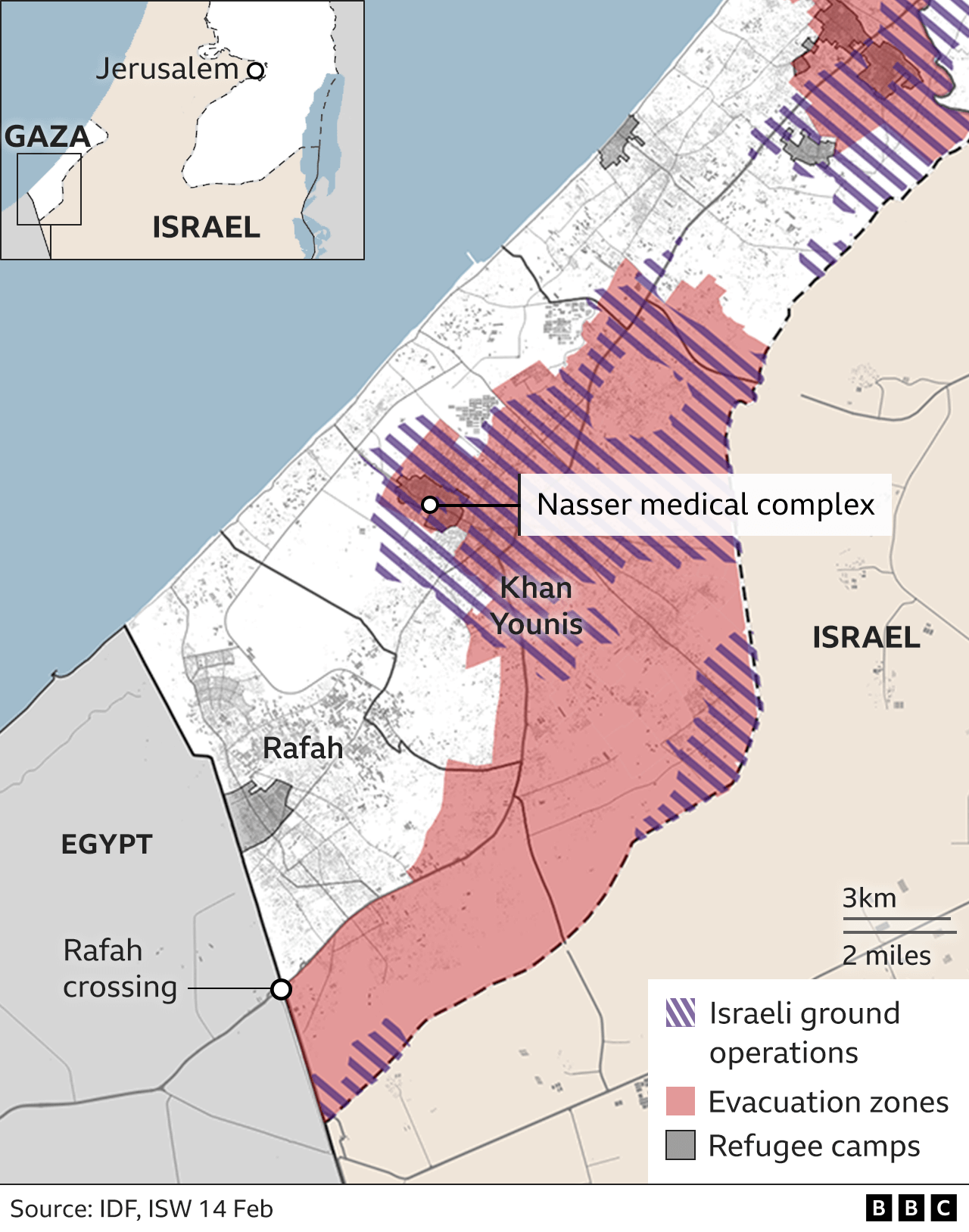
On Wednesday morning, Palestinian journalist Mohammed al-Helo posted on Instagram what he said was footage showing a drone hovering over Nasser hospital, external as a soldier using a loudspeaker says in Arabic: "Go now out of the hospital, go now to the municipality."
About an hour later, he posted another video showing dozens of people walking through a courtyard, external and then turning towards al-Bahr Street, which connects western Khan Younis with the Mediterranean coast.
Later, Gaza's health ministry put out a brief statement accusing Israeli troops of "forcibly evacuating" thousands of displaced people, medical staff and patients from Nasser hospital.
Médecins Sans Frontières reported that displaced people had been ordered to leave and that medical staff and patients had been told that they could remain in the hospital with a limit of one caretaker per patient, external.
The Israel Defense Forces (IDF) said it had "opened a secure route to evacuate the civilian population taking shelter in the area of the Nasser hospital toward the humanitarian zone" - a reference to a thin strip of mainly agricultural land along the Mediterranean coast in an area known as al-Mawasi.
"The evacuation of the civilian population is being conducted in a controlled and precise manner by IDF troops in order to prevent terrorists exploiting the evacuation," it added.
"We emphasize that the IDF does not intend to evacuate patients and medical staff, the troops involved have been thoroughly instructed in advance to prioritize the safety of civilians, patients, medical workers, and medical facilities during the operation."
The IDF also alleged that Hamas - which is proscribed as a terrorist organisation by Israel, the UK and other countries - "cynically embeds itself within hospitals and civilian infrastructure".
Before the evacuation began, a doctor at Nasser hospital said in an audio message that Israeli tanks and snipers had surrounded the facility.
Dr Khaled Alserr, a trauma surgeon, also said that he had treated a 16-year-old boy who was shot as he tried to leave the hospital. "[When] he reached the gate of the hospital he was shot by four bullets by an Israeli sniper," he added.
The Gaza health ministry also said Israeli sniper fire killed three people and injured two others at the hospital on Tuesday. Another seven people were reportedly shot dead in the courtyard on Monday.
There was no immediate response to the allegations from the IDF, although it insists that its forces do not intentionally target civilians.
A doctor at Nasser hospital's emergency department, Haitham Ahmed, told BBC Arabic on Tuesday night that Israeli tanks had destroyed the northern wall during heavy bombardment and violent clashes in the surrounding area.
"Part of the stock of medical supplies... was burned as a result of the morning clashes," he said. "Since [Monday], with the hospital's infrastructure being affected, sewage has unfortunately begun to flow into the departments located on the ground floors of the hospital, and there is a fear that it will reach the emergency and radiology departments."
BBC News Arabic followed paramedics in northern Gaza during the first month of the conflict.
The director-general of the World Health Organization (WHO) wrote on X, formerly Twitter, that he was alarmed by what was reportedly happening.
"Nasser is the backbone of the health system in southern Gaza. It must be protected," he warned. "Humanitarian access must be allowed."
"Hospitals must be safeguarded so that they can serve their life-saving function. They must not be militarized or attacked."
Only 11 of Gaza's 33 hospitals are currently partially functioning, according to the UN.
As well as being overwhelmed by huge numbers of casualties, the hospitals are serving as shelters for thousands among the 1.7 million people who have fled their homes as a result of the fighting. The majority of those displaced are now living in Rafah, south of Khan Younis, where there is mounting concern about the lack of food, water and sanitation.
On Wednesday, Israeli Prime Minister Benjamin Netanyahu pledged to carry out a "powerful" operation in Rafah after civilians were evacuated. He reiterated that Israel would fight on until "total victory".
Meanwhile, the UN's humanitarian chief, Martin Griffiths, told the BBC that there was only 24 hours' worth of food left in the city.
He also warned that it be impossible to run any effective humanitarian operations or protect civilians if Israel sent ground forces into Rafah.
"I understand why the Israelis want to move in on Rafah. I understand their desire to recover those hostages, those poor people," he said.
"What I want to say to you, before it starts is, if there is an assault you cannot, you must not, you should not, rely on the fantasy of a humanitarian operation being able to save people in the middle of such carnage."
In a separate development, Palestinian Authority President Mahmoud Abbas - who is based in the occupied West Bank - urged Hamas to reach a ceasefire agreement in Gaza quickly to avoid "another catastrophic event".
Negotiations are underway in Cairo aimed at securing a new temporary ceasefire deal, including the release of more Israeli hostages in exchange for Palestinians held in Israeli jails.
- Published14 February 2024
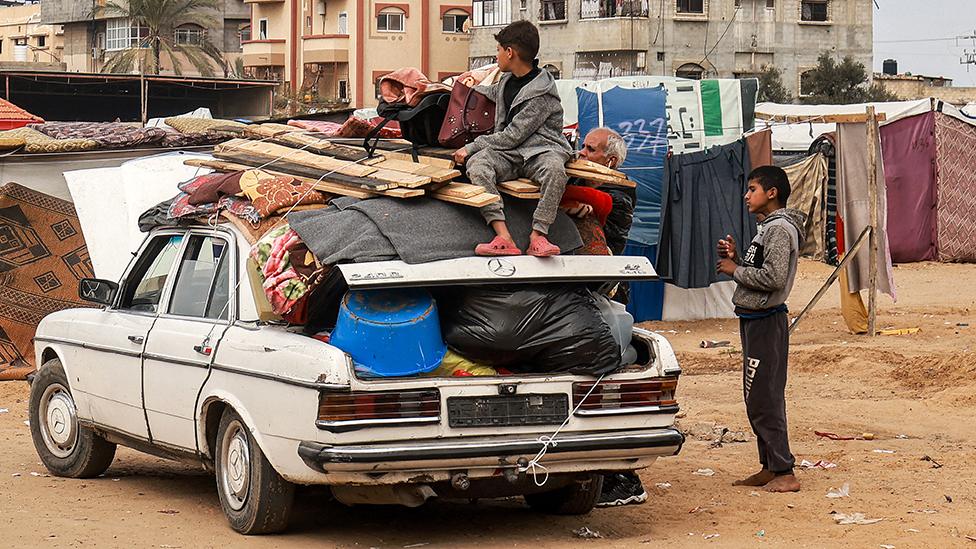
- Published12 February 2024
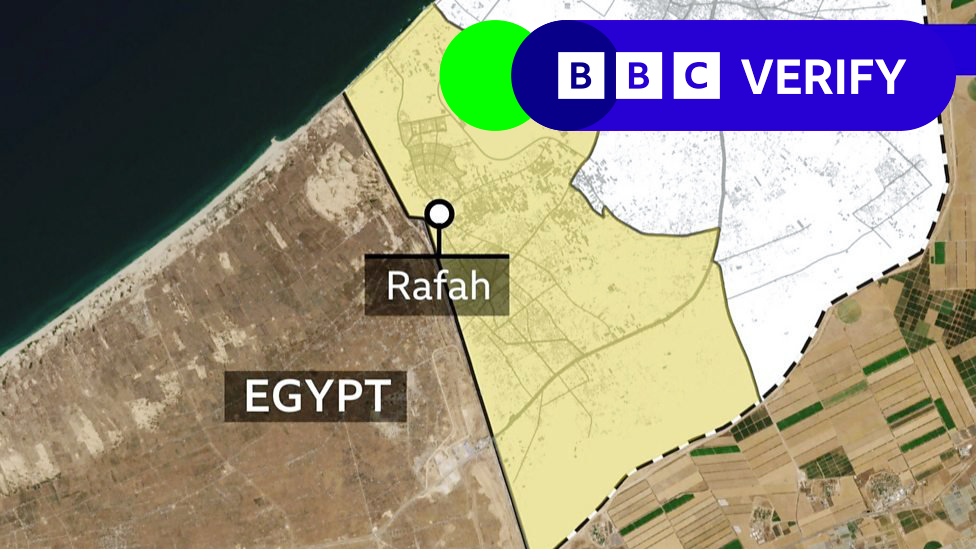
- Published12 February 2024
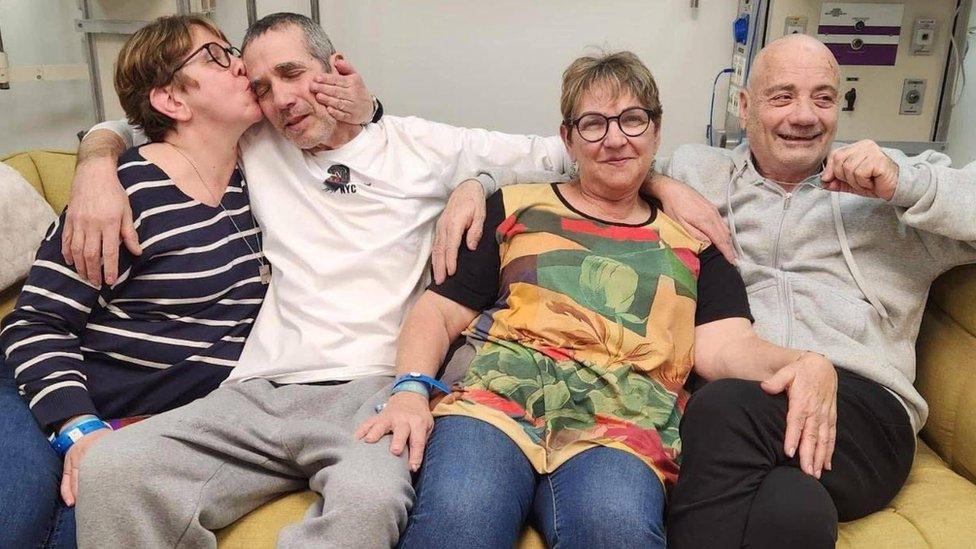
- Published12 February 2024
